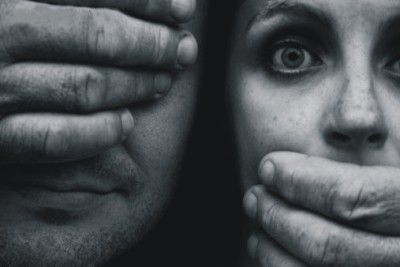Enabling justice

Photo: Antdrea Laurita
The United Nations in Bangladesh and The Daily Star have joined hands to raise awareness on violence against women, as part of the UN Secretary General's global UNiTE campaign. This is the final installment in a series of articles that have appeared in The Daily Star, focusing on the context, the policy interventions, and the actions needed in combating violence against women in Bangladesh.
Every day, the pages of the leading newspapers of Bangladesh report numerous stories of violence against women. A woman tortured by her in-laws because of a dowry dispute; a girl who was so mortified by the harassment of neighbourhood boys that she took her own life; a migrant worker who puts up with constant, unspeakable abuse to keep the job that feeds her children back home.
Violence against women and girls is commonplace in Bangladesh, where statistics show that one in three women face some form of violence. In November 2012 alone, 422 such incidents were reported in national newspapers: more than two-thirds of these involved physical assault, a large portion of the remainder of cases involved sexual abuse (with 62 incidents involving children), and not a negligible number involved burns, including acid violence. Even more alarming, 161 of the victims were murdered and 54 committed suicide.
These statistics are, however, the tip of the iceberg -- a glimpse of a reality that is far more widespread, as the ratio of reported cases to those that never enter the formal justice system is still very low in Bangladesh. Because of cultural attitudes and social taboos, few crimes are reported or investigated.
One of the biggest stumbling blocks to justice is the social mindset, even among women, that if a woman has experienced violence, she must also share a portion of the blame. In a recent survey by the Bangladesh National Human Rights Commission, more than 63% of married women said that violence against wives is "acceptable," especially in cases of "disobedience." Only 18% of victims reported having accessed formal justice. Women have difficulty accessing justice because they are poorer, have a lower social status and must conform to traditional gender roles.
Those who do seek justice usually turn to the traditional dispute resolution mechanism of the shalish, which is often marked by discrimination and human rights violations that leave survivors even more distraught, if not beaten and tortured.
This must change.
If violence against women is to end, it must be punished. And for perpetrators to be held accountable, victims must be able to turn to an effective, fair and accountable justice system.
UNDP Bangladesh has worked closely with the government and civil society partners to create frameworks and systems that will ensure that victims of violence get the services they need and deserve from the initial point of contact of seeking justice to the last.
A first step has been to ensure that women are treated fairly and respectfully by law enforcement officials and don't have to fear that reporting a crime will put them at risk of harassment or mistreatment by police. UNDP's Police Reform Programme has focused on hiring and training female police officers. In the past three years, the number of trained female police officers has doubled to number 3,000. And in partnership with leading NGOs and human rights groups, the Bangladesh Police have also established Victim Support Centers, which provide health, psychological and legal assistance for women and children victims of violence.
Since it is the financial and procedural burdens of accessing the formal justice system, among other factors, that inhibit women from seeking redress, localised alternatives to the shalish, become imperative. Through its Activating Village Courts project, UNDP is supporting efforts to provide access to justice services for poor women and men, who can't afford to get involved in legal processes that can stretch on for years. The village courts initiative has led to the creation of women-friendly, geographically accessible legal institutions. The establishment of village courts across the country aims to reduce legal complexities and backlogs of cases which represent a key reason why many fail to obtain justice.
Demand for village courts has increased exponentially: by now several thousand people are approaching the courts every month; and a third of the total number of cases has involved women plaintiffs. By providing women a place to seek justice and ensuring that the processes are not prolonged, the village courts have encouraged women to come forward with their complaints. In this way, village courts supplement rather than replace the formal justice system, referring cases on to the formal justice system when the offence is serious in nature. They have also been critical in raising awareness and changing attitudes toward violence against women in the community. A proposed amendment of the Village Court Act makes it mandatory that women are included in panels that hear cases relating to women.
UNDP is also supporting the efforts of Bangladesh to provide free legal aid to poor citizens, in particular poor women, as a citizen's access to justice cannot depend on the ability to pay legal fees. Since 2010, in five districts, there has been an average monthly increase of 154% in legal aid applications, approximately half of which were from women.
Though these are all positive developments, it is clear that there is much more to be done to enable justice and combat violence against women. As in other countries throughout the world, the culture of violence, and the silence around it, is deeply rooted within Bangladeshi society.
Ending violence against women is not just a women's issue. Rather, it must be considered central to determining whether Bangladesh will achieve sustainable human development and, more important, fulfill the promises of equality enshrined in its constitution.

 For all latest news, follow The Daily Star's Google News channel.
For all latest news, follow The Daily Star's Google News channel. 



Comments